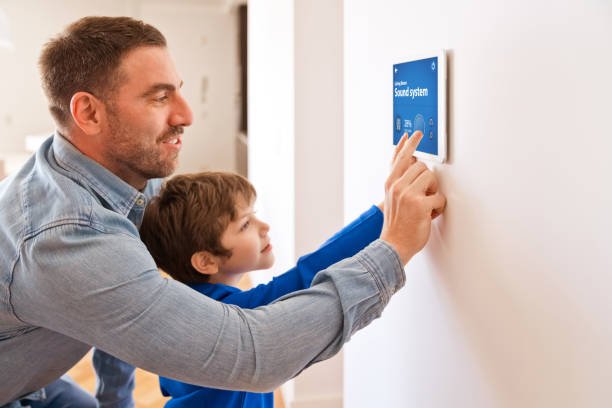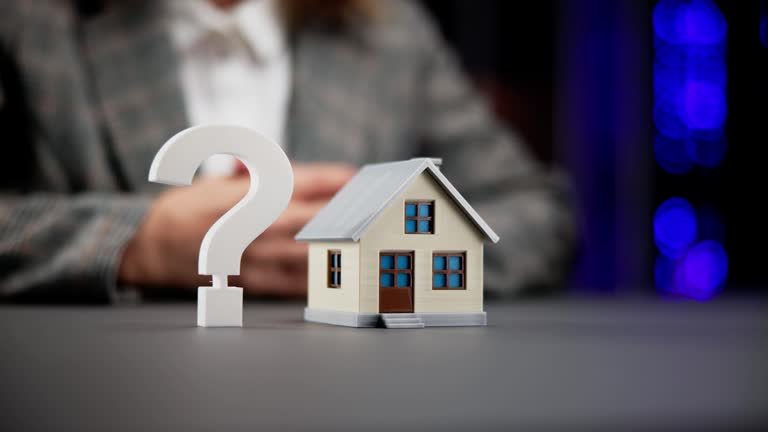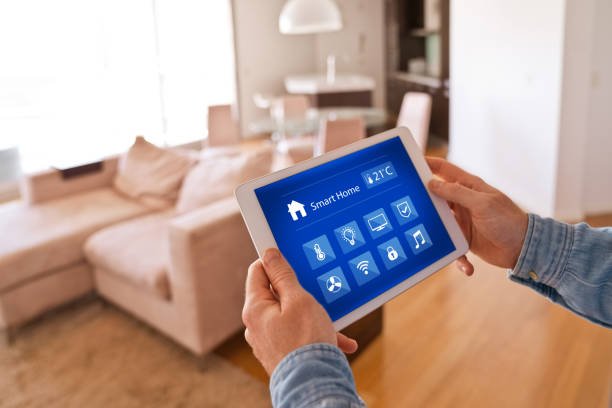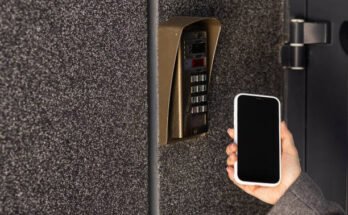1. Introduction: Why More Renters Are Switching to Smart Locks?
Our approach to securing our homes is changing, and the renters are now on the frontline of change. Since many individuals are now shifting to the urban centers and are living in militarized, there is a rising security concern.
Problems with conventional locks can be a lack of security or convenience that today’s tenants require. This is where smart locks come into play, giving a new dimension to convenience, customization, and security. The following article explains why renters transition to smart locks, the advantages of smart locks, and the important considerations of the change.
2. Changing Needs of Renters

Modern Security Expectations
Tenants today are different and they demand much more on their home security. As crime rates rise and fall and the importance of security rises rapidly, tenant needs a product that provides them with a sense of security and control. These expectations are fulfilled by smart locks offering keyless entry, remote access, and enhanced locking mechanisms compared to standard deadbolt locks.
Flexibility and Convenience for Tenants
While homeowners work with fixed and individual spaces, renters have to manage communal or temporary homes. Smart locks reduce the inconvenience of having to change keys, which enables one to change access codes with new roommates, guests, or service workers.
3. Benefits of Smart Locks for Renters
Enhanced Security Features
Smart locks offer high levels of security due to their ability to encrypt data and are less prone to being compromised as compared to traditional locks. This way you are guaranteed your apartment will be secured against the would-be burglars, including the frequently used areas.
Keyless Entry and Remote Control
One of the great selling points of smart locks is familiarisation with the smart technology for entering your home without a traditional key. To the renters, this is something of a godsend, as they will no longer have to lose keys or end up locked out of their homes. Newer models of these kinds also come with features that enable them to be unlocked from a Smartphone since this can be very useful when you’re having guests over but you are not home.
Seamless Integration with Other Smart Home Devices
Many smart locks operate jointly with other smart equipment such as security cameras, doorbells, and thermostats. This can construct a completely linked, secure home atmosphere, providing an extra convenience feature.
Cost-Effectiveness for Tenants
It’s surprising, but smart locks are not only designed for luxurious flats. Accessible choices are available that include all the important features at a reasonable cost.
4. Increased Adoption of Smart Locks
Rise of Smart Home Technology
The use of smart home technology is on the rise and this is evident in the fact that more renters are now adopting smart locks for their living situations. This can also be attributed to the added convenience and improved security which has made it so that tenants are beginning to expect this from their landlords.
Urban vs. Rural Adoption Rates
Thus, smart locks are becoming more popular in urban areas as the threats affect people and their property, and smart home technologies become more available. However, it is interesting to see that the usage of smart locks has increased drastically in rural regions as well.
Demand from Millennial and Gen Z Renters
Concerning smart locks, Millennial, and Gen Z renters understand the simplicity and technology-centered approaches of these solutions. The partners’ connection to intelligent devices means incorporating smart locks into their daily schedules.
5. Addressing Landlord Concerns

Management of Access Control for Multiple Tenants
Landlords frequently reflect on how to supervise access control, especially in buildings with numerous units. The use of smart locks offers an easy method for landlords to provide or revoke access online without needing to change physical locks.
Landlord-Tenant Collaboration on Installation
It is important to note that at times, landlords and tenants can work together to put in place smart locks occasionally. Tenants can opt to buy and fit the locks on their own and this implies that landlords get to boost security while at the same time acknowledging that costs will not be very high.
Increased Property Value
The application of smart locks in properties is deemed to make them look sophisticated and secure thereby increasing rental charges. That is why the use of smart locks is advantageous for, both, the tenant and the owner of the property.
6. Types of Smart Locks Popular Among Renters
Wi-Fi vs. Bluetooth Smart Locks
Wi-Fi integrated lock offer more possibilities of remote control than Bluetooth-connected ones and can be more reliable and less power-consuming. Instead, they should consider the requirements of their particular living situation before deciding on what technology to use.
Keypad vs. Biometric Smart Locks
Those who seek fast lock opening yet cannot be bothered with a smartphone will benefit from keypad locks in renting a property. For instance, biometric locks often employ fingerprints to grant physical access making security from them extremely robust.
Budget-Friendly Options
Several companies provide low-cost smart locks designed mainly for tenants, providing critical features at an economical cost.
7. Safety and Privacy Considerations
Data Security and Encryption
Smart locks provide convenience, but they also create worries about hacking. The good news is that the vast majority of recent smart locks are designed with secure encryption and multi-factor authentication to defend against unauthorized entry.
Tenant Privacy vs. Landlord Access
Some of the tenants lack confidence in smart locks due to the belief that landlords will exert more control over the areas where the tenants live. However, there are times when access and privacy expectations are mutual and agreed upon by both parties, both are comfortable with the situation.
8. Smart Lock Maintenance and Upkeep

Regular Software Updates
Smart locks require regular updating of the software to avoid being vulnerable to hackers. With many locks, the user can set updates within the app, thereby ensuring the system’s safety from vulnerabilities.
Battery Life and Maintenance Costs
In general, smart locks are operated by batteries that at some point have to be changed. People who rent should take into account battery life when selecting a lock and calculate the maintenance costs that may come.
9. Real-world examples and Testimonials
Renters’ Experiences with Smart Locks
A new trend among apartment residents is that more and more of them have installed smart locks to say that they feel safer, and they like the keyless entry. Some have commented that it improved their relationship with their landlords since it reduces the need to change the locks frequently.
Case Studies on Smart Lock Adoption
Research shows that smart locks have reduced the cases of security breaches in large rental houses while at the same time improving ways of accessing the house for the tenants, thus making it a good investment for the owners.
10. Future Trends in Smart Lock Technology
Integration with AI and Voice Assistants
The next phase of smart locks would include integration with AI and will allow Alexa and Google Assistant to open doors with simple voice commands.
Emerging Smart Lock Features
Expect increased features on smart locks shortly, including facial recognition technology, better geofencing capabilities, and greater compatibility with home security systems.
11. How to Choose the Right Smart Lock

Factors to Consider When Selecting a Smart Lock
While selecting a smart lock, renters should keep in mind simple installation, how well it meshes with their rental space, and if the landlord approves of any modifications.
Compatibility with Rental Property Requirements
The smart lock a renter opts for cannot interfere with the lease agreement and any security systems that the property employs.
12. Common Myths About Smart Locks
Smart Locks Are Expensive
While some smart locks demand a premium, many affordable options provide the essential functionality they require.
Smart Locks Are Difficult to Install and Use
While many renters are concerned that installing a smart lock will entail considerable drilling or rewiring, a majority of contemporary smart locks are built for straightforward installation with limited effect on the property.
13. Conclusion
The increase in smart lock usage among renters is part of a broader process of improving smart and inter-connected residential interiors. Compared to ordinary locks, both conveniences and safety are noticeably increased in the availability of these devices.
With the improvement in the cost of technology, such a shift will likely increase substantially once the technology becomes common among renters. For those tenants who wish to make their living easier and at the same time improve the security of their property, getting smart locks is usually considered to be a good step.





One Comment on “Why More Renters Are Switching to Smart Locks?”